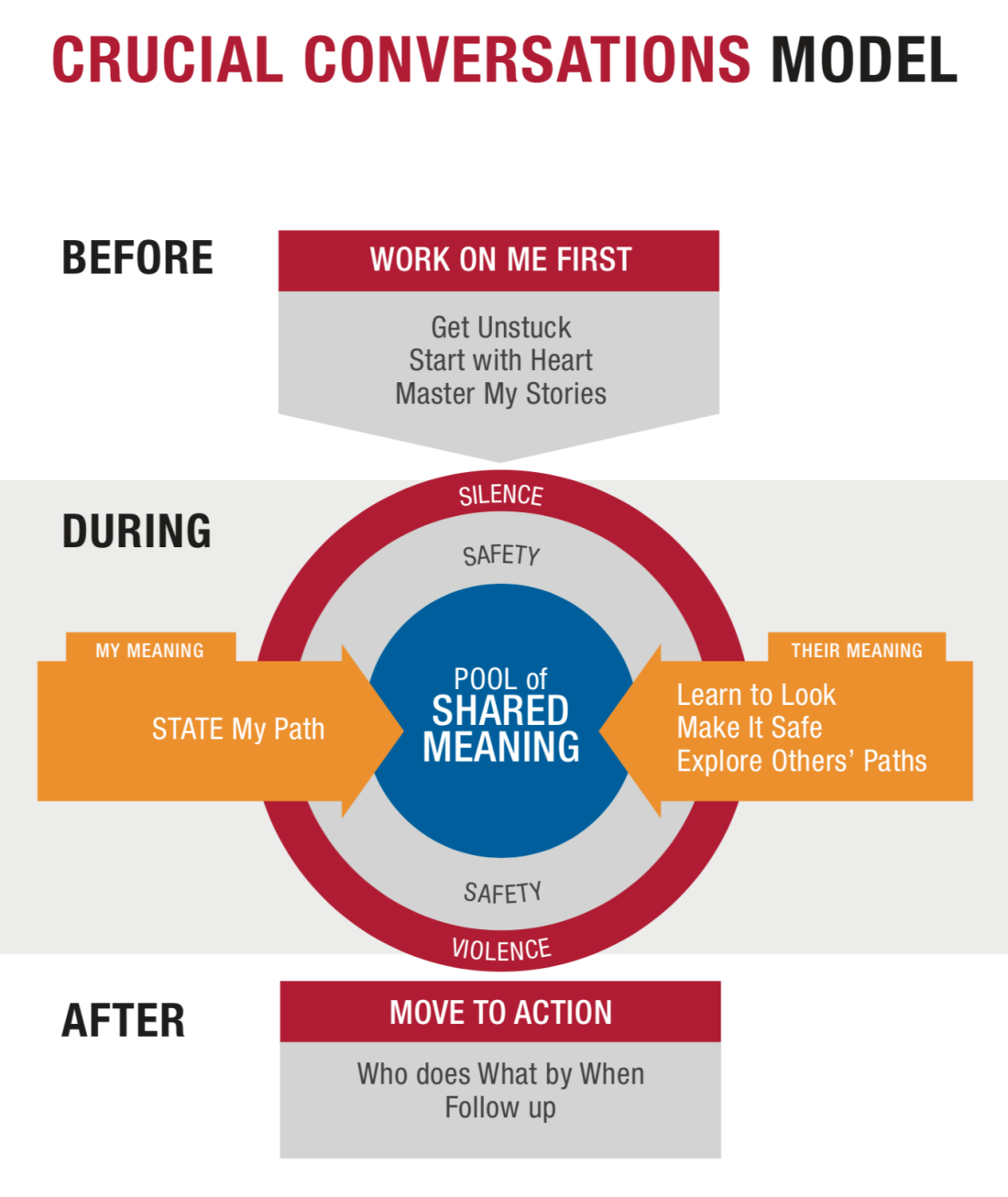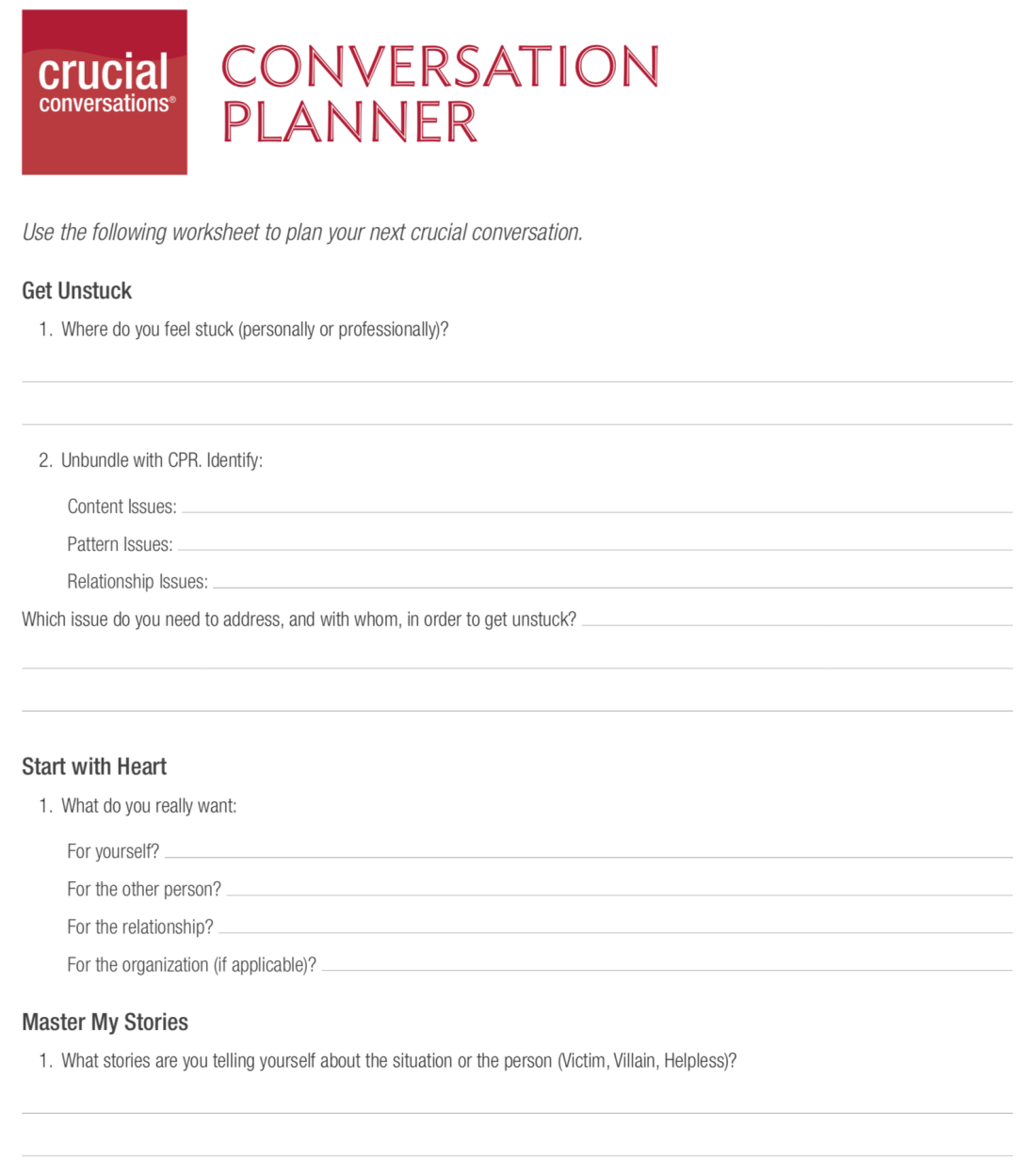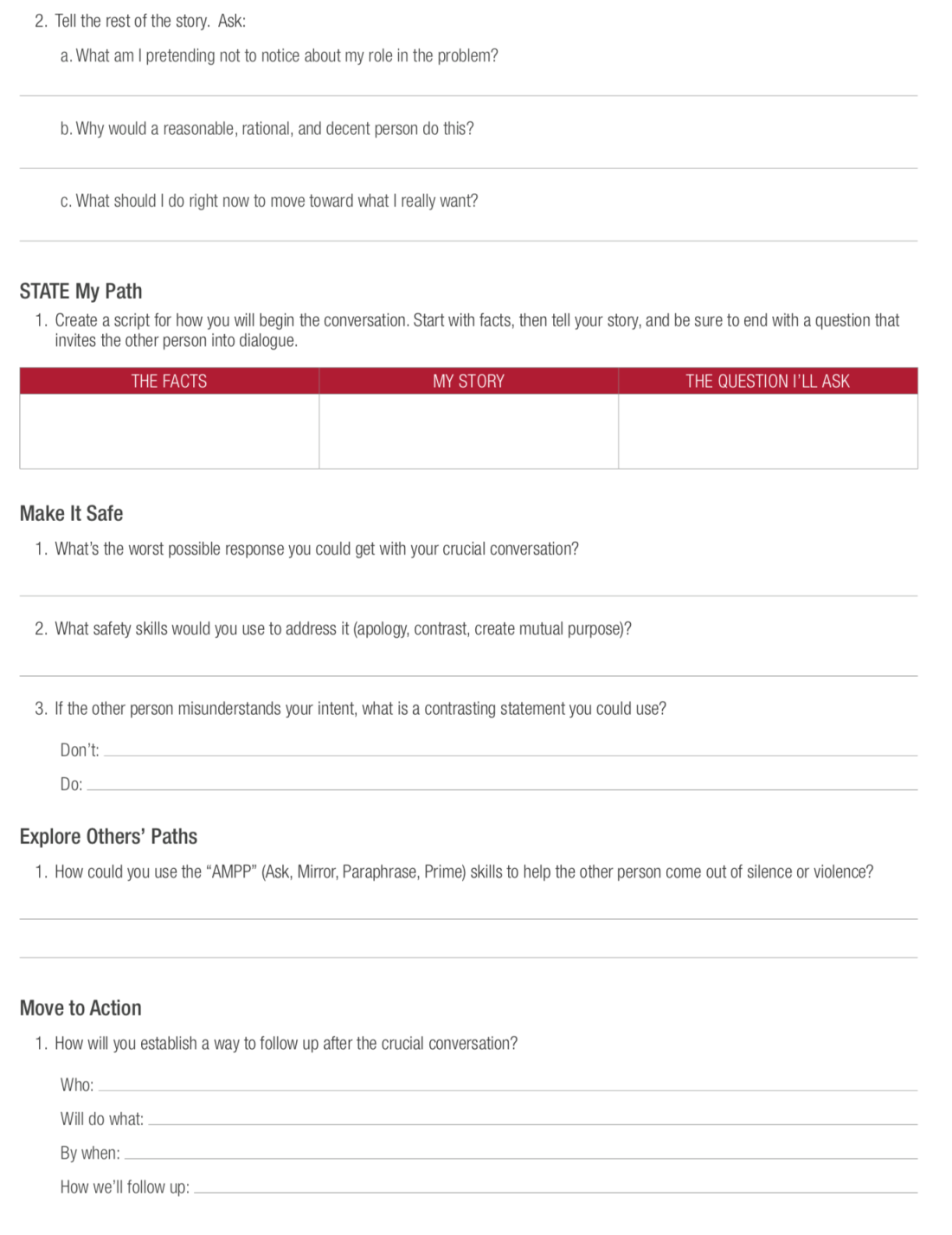I recently attended at workshop led by the ombudsperson at the graduate school. Thus, I want to take the time to share some resources to help engage in critical conversations with you all. It seems that many of the ethical dilemmas we may face in our graduate and professional careers may be caused in large part by the inability or unwillingness to approach difficult conversations constructively. I hope this helps.

Note: violence in this sense is not necessarily physical violence, but rather responding destructively to difficult conversations.
Here’s a worksheet to help facilitate this:


Lastly, it is important to prime opportunities for feedback by:
- Know yourself.
- If overwhelmed by feedback, ask for one to two key takeaways in which you could benefit from the most.
- Coach your coach.
- Invite people to really get to know you, so that they can give appropriate feedback according to who you are or who you have the potential to be.
Very interesting! Thanks for sharing 🙂
LikeLike
Thanks for sharing this. I think that one critical skill we often overlook is conflict resolution. Having difficult conversations with others can be difficult and is rarely enjoyable but having these conversations is often very important. I agree that in many of the cases we have studied this semester there have seemed to be a lack of these conversations taking place. I think, in many ways, this has contributed to the unethical behavior. If we want to uphold our own ethics we need to be able to have difficult conversations with people who might not be receptive to what we are telling them.
LikeLike
That response was me, not sure why is listed it as “anonymous”
LikeLike
I love this so much! I think it could be really helpful for important conversations but I also think it’s useful for personal reflection before the conversation starts (and to determine if it even needs to happen). Thanks for sharing!
LikeLike
Thank you for sharing! I like how it asks to consider the worst possible outcome of a difficult conversation. In the moment, I think we often feel something horrible is at stake. Even in the most intense and critical conversations, really is there an immediate crisis of life, death, or serious injury to someone. Therefore, it is good to remember that a lot more good could come even if it feels threatening.
I think this whole model is very difficult to implement outside of an academic setting, however, the general concept, of becoming more conscious of our own growth and needs, retelling the story and listening twice to another person’s story are key traits of someone who might have great and beneficial influence.
LikeLike
Two way communication and aggressively dealing with difficult conversations, would sure minimize many problems we experience day to day.
LikeLike